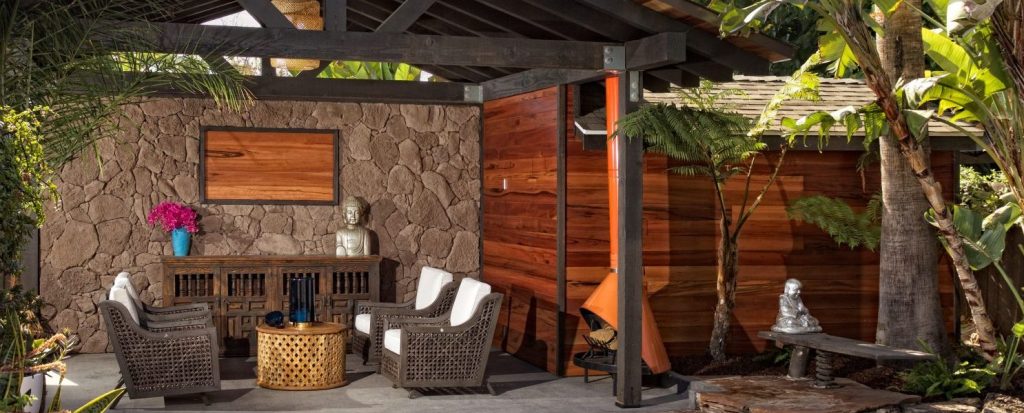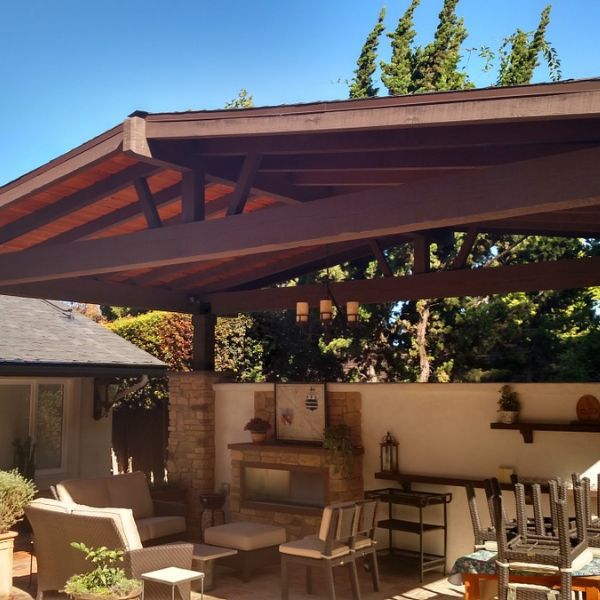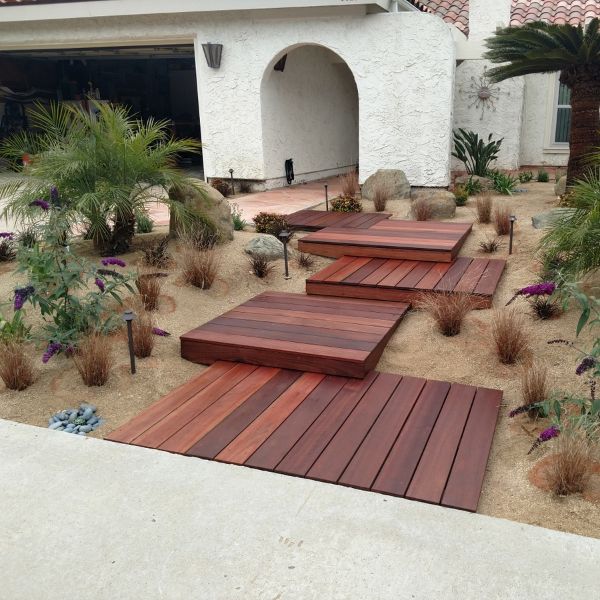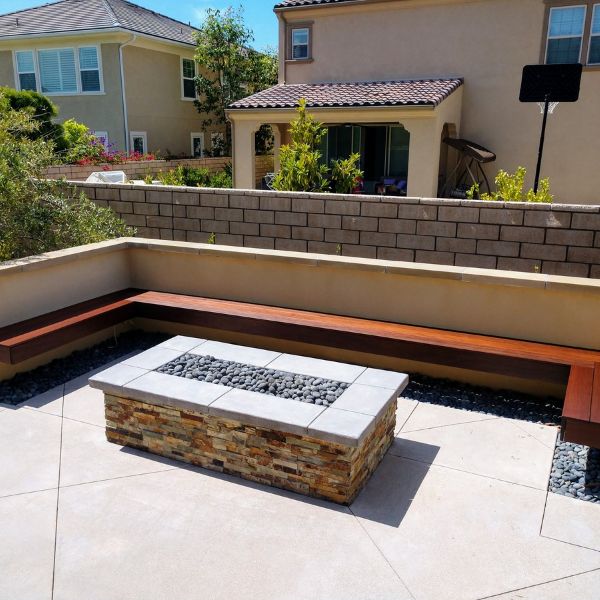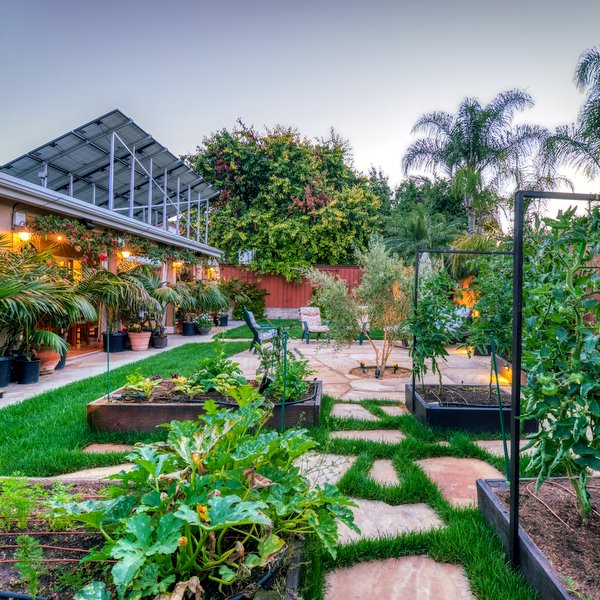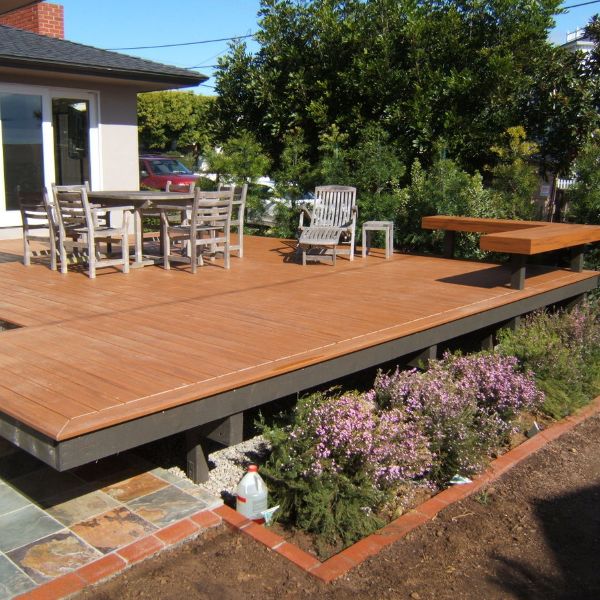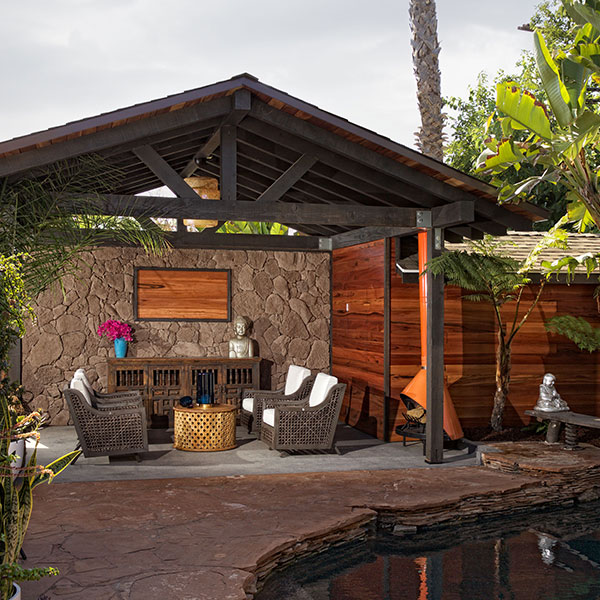A Guide to Durable Woods for Outdoor Living Spaces in San Diego, CA
When taking on an outdoor wood project, whether it’s building new custom decks, fencing and gates, pergolas, or other landscape structures, one of the most important decisions is choosing the right type of wood.
At Wilson Woodscape, our woodworker, Jeff Wilson, has over 25 years of experience designing and building custom wood structures for backyards across San Diego.
Key Factors to Consider When Selecting Wood
When choosing lumber for your custom deck, patio cover, fence, or other outdoor project, you’ll want to consider these key factors:
- Durability — Teak, Ipe, cedar, and redwood offer exceptional longevity. Treated pine is more susceptible to moisture and insect damage over time.
- Appearance — Do you want dramatic contrast or to match existing tones? Cedar has a reddish hue. Ipe is a rich brown-gray. Oak is tan-white when new.
- Price — Common softwoods like cedar and pine are budget-friendly. Premium tropical hardwoods cost far more but are extremely resilient.
- Availability — Verify you can readily source the amount of specialty wood needed. Standard woods are easy to acquire.
- Use and Exposure — Choose wood rated for in-ground use if needed. Ensure it’s suitable for sun or shade conditions.
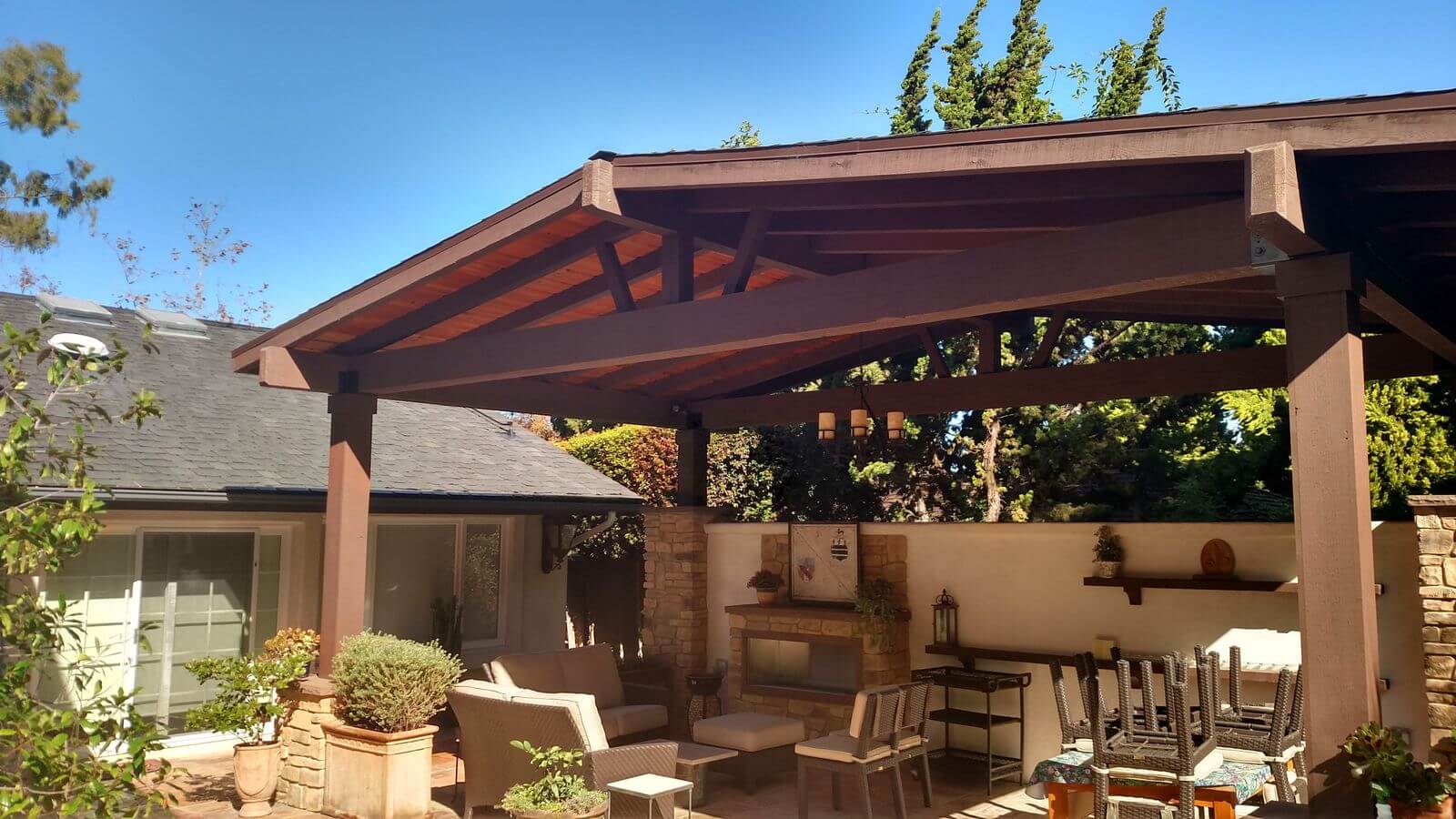
The Difference Between Hardwoods and Softwoods
It helps to first understand the difference between hardwood and softwood trees. Hardwoods. like oak, maple, and mahogany, come from broadleaf deciduous trees which lose their leaves annually. They’re generally harder and denser than softwoods. Softwoods, like cedar, fir, and pine, come from conifer trees which keep their needle-like leaves year-round. Despite the names, some softwoods are quite hard while lower-density hardwoods can be relatively soft.
For outdoor projects, softwoods are more commonly used as they tend to be more resistant to the elements. But some durable tropical hardwoods can also be suitable for exterior use if given proper maintenance.
Popular Outdoor Softwoods
Western Red Cedar
Red cedar is one of the most popular outdoor softwoods due to its natural rot resistance and appealing reddish-brown color that ages gracefully to a silvery hue over time. Its natural oils help repel water, insects, and decay. It often makes an excellent choice for decks, patio covers, fencing, and planter boxes and is moderately priced for its durability and beauty.
Redwood
Like cedar, redwood naturally resists insects, moisture, and rot thanks to its tannins and oils. It has stunning red heartwood that makes for striking retaining walls, deck boards, landscaping ties, and outdoor furniture. Redwood costs more than cedar but is highly durable even in direct ground contact.
Treated Pine
For a budget-friendly option, pressure-treated pine is widely accessible and suitable for outdoor use. Treated pine can help protect against fungal rot and insects. You’ll want to make sure to get pine rated for ground contact if needed. You should also seal cut ends and surfaces for added protection. Treated pine will also require more maintenance than naturally resilient woods.
Teak
Prized for its natural oils, dense grain, and weather resistance, teak is common for upscale outdoor patio furniture, pool decks, and flooring. It doesn’t warp or rot when exposed to sun, rain, snow, or soil. Teak has an attractive golden-brown color when new that grays and weathers over time. However, it’s quite expensive and needs periodic maintenance.
Spruce
Spruce is frequently employed in structural applications like framing, railings, and posts due to its exceptional strength-to-weight ratio. This wood type is also utilized in the creation of musical instruments, including guitars and pianos, thanks to its resonant properties. Spruce has a light blond color and straight grain that stains well.
Fir
Fir is known for its strength and structural stability, which makes it a popular choice for building components like beams, columns, deck joists, and posts. It’s also used in the construction of plywood, where its consistent grain pattern ensures stability and uniformity. Fir has moderate rot resistance if properly finished and maintained well.
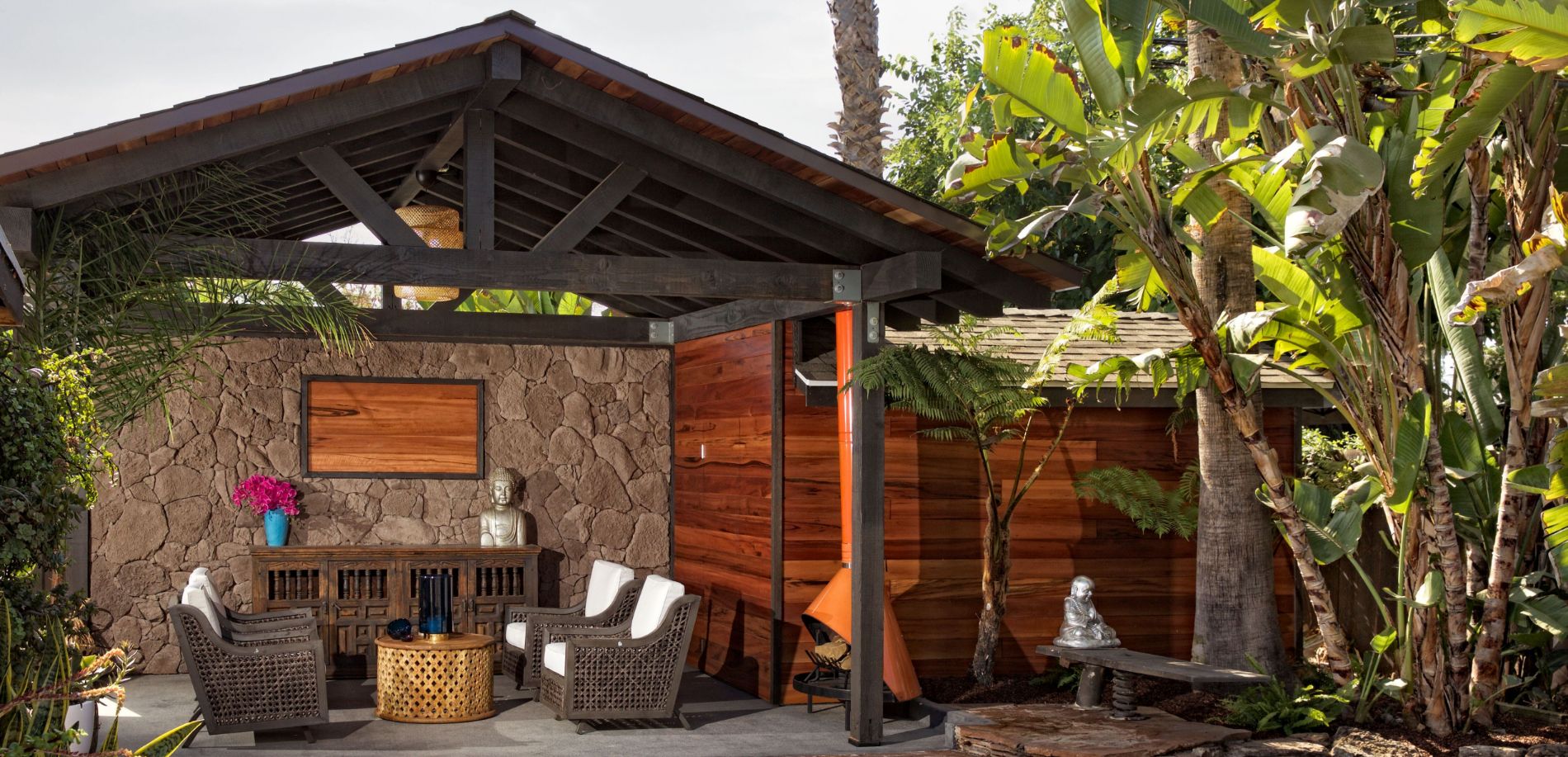
Popular Outdoor Hardwoods
Ipe
An extremely dense Brazilian walnut, Ipe is one of the hardest and most durable outdoor woods. It’s given an oil finish, allowing it to stand up well to weather, wear, rot, and insects. Its tight grain has an attractive mix of browns and grays. It can be an excellent choice for decking but it can become very expensive.
Mahogany
Genuine mahogany has a distinctive reddish-brown finish perfect for accent details or deck boards. It’s a high-quality hardwood but it requires maintenance with oil or varnish to protect it from moisture and sun damage, which can cause fading.
White Oak
As a dense, slow-growing oak, white oak is often used for outdoor furniture, decking, and fencing. When properly sealed and maintained, it ages gracefully to an attractive silver patina. However, we recommend avoiding direct ground contact to prevent rot.
Garapa
Garapa is a Brazilian hardwood that’s dense, durable, and moisture-resistant, similar to its cousin ipe, but at a lower cost. Garapa has a mix of tans and browns that can gray naturally over time. It’s an excellent choice for decking or outdoor furniture.
Cumaru
With a range of golden brown to reddish tones, cumaru offers the hardness and longevity of ipe. It’s extremely dense and weather-resistant. Cumaru can be slippery when it becomes wet and requires some extra maintenance. This tropical wood is frequently used for decking, patio covers, planter boxes, benches, and other outdoor projects where its durability and rich colors are desired. When properly sealed and cared for, cumaru ages gracefully in outdoor settings.
Tigerwood
Named for its exotic black, brown, and orange striping, tigerwood is durable enough for decking when sealed. Its dramatic colors pair well with lighter wood but gray slightly in the sun over the years. This tropical hardwood is often utilized for deck boards, patio furniture, planter boxes, and exterior trim accents. The unique banding of tigerwood adds visual interest to any outdoor space. With proper maintenance, this wood will maintain its beauty outdoors for years.
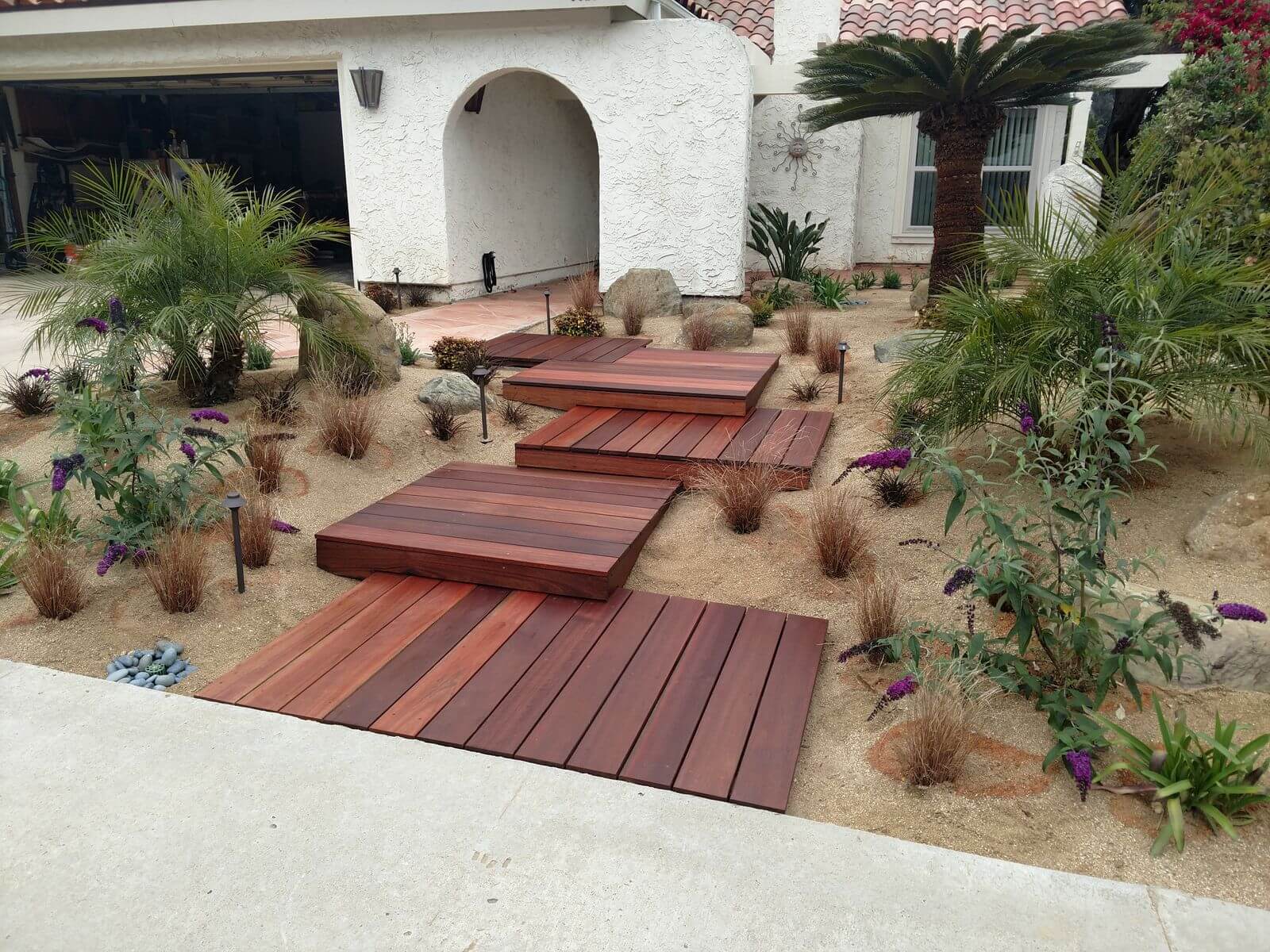
Suitability of Wood for Outdoor Projects
When selecting wood for outdoor projects, considering the suitability of different wood types is crucial. While both softwood and hardwood can be used for outdoor applications, their inherent characteristics make them more suitable for specific purposes.
Softwoods for Outdoor Use
When it comes to softwoods, consider the following factors:
- More affordable and easier to work with
- Commonly used for walls, ceilings, doors, windows, furniture
- Lower density and durability compared to hardwoods
- More prone to decay, insect damage, and moisture issues outdoors
- Require frequent maintenance like painting/staining
Hardwoods for Outdoor Use
When it comes to hardwoods, consider the following factors:
- Excellent for decking, cladding, outdoor furniture
- Higher density provides strength and durability
- Resilient against weathering, wear, insects, fungi, rot
- Contain natural oils and resins that resist moisture damage
- Suitable for high-traffic areas like decking
- Lower maintenance requirements compared to softwoods
- Favored for demanding structural applications outdoors
Select the Right Wood for Your Project With Wilson Woodscape
No matter what project you have in mind, the team at Wilson Woodscape can help you select durable, stunning lumber tailored to your backyard. Contact Wilson Woodscape at (619) 838-1398 today to get started designing your ideal outdoor living space!

